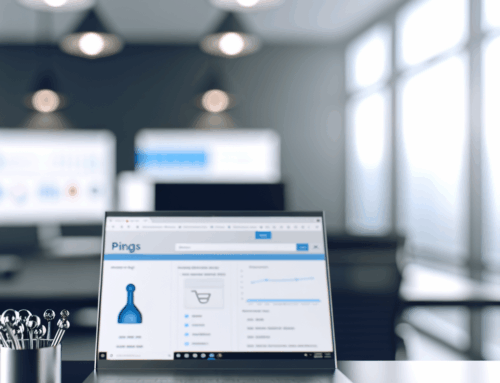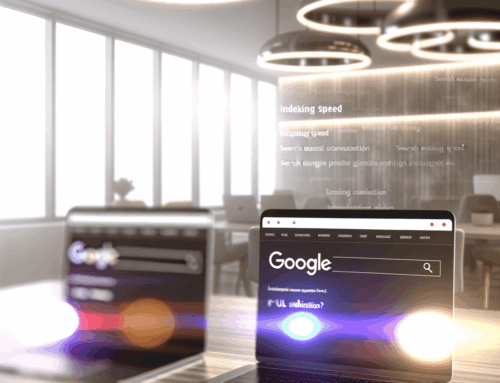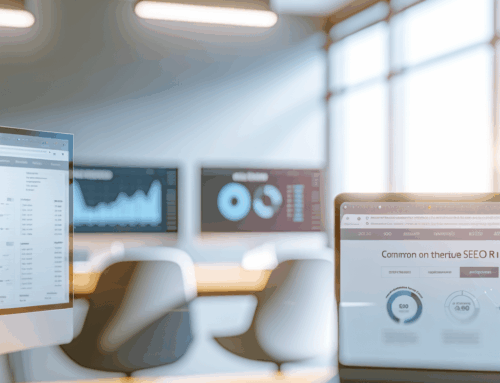Hello, my name is Eugen Platon, and I am the founder and SEO expert of onwardSEO. Today, I’m here to help you diagnose and resolve technical SEO difficulties. Understanding technical SEO is critical for online success, whether you’re an entrepreneur or the owner of a small to medium-sized e-commerce company. Let’s get into the details of technical SEO audits, services, and frequent concerns you may encounter.
Why Is Technical SEO Important to Your Business?
Before we go into the details, let’s go over why technical SEO is important. Consider having a wonderfully designed store but with a difficult-to-find entrance. That’s what owning a website with technical SEO concerns feels like. You may have fantastic content, but if search engines are unable to crawl and index your site efficiently, potential clients will never find you. Technical SEO guarantees that your website is easily accessible, fast, and user-friendly, which has a direct impact on your search rankings and overall user experience.
What are some common technical SEO issues?
Let’s look at some of the most frequent technical SEO issues that can impede your site’s performance, as well as how to successfully diagnose and resolve them.
Is your page speed too fast?
Slow Page Speed
One of the most important parts of technical SEO is the page speed. A sluggish website irritates users and might cause higher bounce rates. But why is page speed so important, and how do you enhance it?
Why Page Speed Matters
Users expect your website to load promptly. In today’s fast-paced digital environment, even a few seconds of delay might result in a negative customer experience. According to studies, a one-second delay in page load time can reduce conversions by 7%. For an e-commerce firm earning $100,000 per day, a one-second page delay might result in $2.5 million in missed sales yearly. Furthermore, Google considers page speed a ranking element, which means that a slow website might lower your search engine rankings, lowering exposure and visitors.
Diagnosing Page Speed Issues
To diagnose page speed issues, begin by using tools such as Google PageSpeed Insights or GTmetrix. These tools generate extensive data on your website’s performance, indicating specific areas for improvement. Google PageSpeed Insights, for example, rates your website on a scale of 0 to 100 and makes practical recommendations. GTmetrix provides information on a variety of performance measures, including page load time, total page size, and number of queries. Both programs also provide recommendations grouped by priority level, allowing you to address the most significant issues first.
Common causes of slow page speed
Slow page speed can be caused by a variety of issues, including huge picture files, unoptimized code, and numerous HTTP requests. Large graphics might substantially slow down your website. TinyPNG and ImageOptim can compress your photographs without sacrificing quality. Unoptimized code, such as JavaScript or CSS that blocks rendering, can cause your page to take longer to load. Minifying CSS, JavaScript, and HTML can help you reduce file size and improve site speed. Furthermore, excessive HTTP requests caused by a large number of components on a page might slow down load times. Simplifying your page design and implementing tactics such as lazy loading can assist to alleviate this problem.
Implementing Improvements
After recognizing the problems, put the suggested solutions into action. Optimize your images, employ browser caching, and content delivery networks (CDNs) to distribute your material globally, resulting in faster load times for users in diverse areas. Monitor your page speed on a regular basis with the tools listed above to ensure that your modifications are effective and your site remains fast.
Are there any broken links?
Broken links are not only inconvenient for consumers, but they also cause problems for search engines. They can crawl your website and discover dead ends, resulting in a poor user experience and possibly damaging your SEO efforts. But why are broken connections so important, and how can you successfully find and fix them?
Why Do Broken Links Matter?
Broken links, also known as dead links, arise when a hyperlink connects to a webpage that no longer exists or was transferred without being updated. A broken link can be frustrating for users and may cause them to abandon your site completely. This raises your bounce rate and lowers the likelihood of turning visitors into buyers. Broken links have a negative impact on search engine crawlability. Search engine bots waste time scanning these dead ends when they could be indexing your site’s live, meaningful information. This inefficiency might reduce your site’s crawl budget, making it more difficult for your critical pages to get indexed and ranked.
Diagnosing Broken Links
Identifying broken links on your website is an important step towards keeping a healthy site structure. Tools like Ahrefs’ Broken Link Checker and Screaming Frog are quite useful for this process. Ahrefs’ Broken Link Checker allows you to enter your website URL and receive a detailed report on any broken links on your site. It includes information about the referring website, the broken URL, and the anchor text, allowing you to easily identify the problem. Screaming Frog, on the other hand, crawls your entire site and provides a full report of all broken links, both internal and external. It also sorts these connections according to response codes, like as 404 errors, making it easier to prioritize fixes.
Common Causes of Broken Links
Several circumstances might cause broken links, including changes in URL structure, deleted pages, and external sites going down. For example, if you rebuild your website and alter the URLs without first setting up suitable redirects, all prior links to those pages would disappear. Similarly, removing a page without updating or removing links to it results in dead ends. External links may also break if the linked content is removed or moved.
Fixing Broken Links
Once you’ve found the broken links, the next step is to fix them. For internal links, change the URL to connect to the proper page or configure 301 redirects to direct people to the new destination. For external links, you can either discover a new appropriate link to replace the damaged one or delete the connection entirely if no suitable alternative exists. Regularly checking your website for broken links is critical. Schedule monthly inspections using the tools listed above to ensure that any new broken links are handled as soon as possible.
Is Your Website Secure?
No HTTPS: Google uses HTTPS as a ranking criteria. It also fosters trust among your users. Install an SSL certificate to ensure your website’s security. SSL Labs and other tools can help you test the security of your website.
Is your XML Sitemap properly configured?
Poor XML Sitemap: An XML sitemap helps search engines understand your website’s structure. To generate and maintain an accurate sitemap, use programs such as Yoast SEO or Google XML Sitemaps.
Do you have a robots.txt file?
No Robots.txt File: This file instructs search engines which sites to crawl and which to ignore. Using tools like Google’s Robots.txt Tester, you can ensure that your robots.txt file is properly configured.
Are your redirects set correctly?
Misconfigured Redirects: Incorrect redirections can cause serious SEO issues. Use tools like Screaming Frog to audit your redirects and guarantee they’re configured correctly.
Is Your Content indexed?
Content Not Indexed: If your content is not indexed, it will not show up in search results. Check the status of your index in Google Search Console and upload your sitemap there.
Is JavaScript Overused?
Overuse of JavaScript: While JavaScript can improve the user experience, excessive use might slow down your site and prevent crawling. Use tools such as Google’s Mobile-Friendly Test to guarantee that your website is accessible.
Are You Using Cloaking Techniques?
Cloaking: Showing alternative material to users and search engines is strictly prohibited. Use tools such as Google Search Console to confirm that your website is not concealing content.
Title Tags: Are They Unique?
Duplicate Title Tags: Search engines may become perplexed by duplicate titles. Use tools like SEMrush or Moz to find and fix duplicate title tags.
Are you handling 404 errors?
404 errors: can impact both user experience and SEO. To discover and fix 404 issues, use tools such as Google Search Console.
Are your URLs optimized?
Unoptimized URLs: Clean, descriptive URLs benefit both users and search engines. But what exactly does it mean to have optimized URLs, and how can you verify they’re up to par?
Why is URL optimization important?
URLs are among the first things people and search engines encounter when browsing the internet. A well-structured URL delivers a clear and short summary of the material it links to, improving user experience and allowing search engines to better grasp the context of your pages. Optimized URLs help to improve rankings by making your site more accessible and easy to explore, as well as raising click-through rates (CTR) by displaying a clear and appealing link in search engine results pages (SERPs).
Characteristics of optimized URLs
Clarity and Readability: An optimized URL should be simple to read and understand at first look. Avoid large numbers, special characters, and needless parameters. Instead, use clear language to describe the page’s content.
Conciseness: Shorter URLs are often preferred. They are easier to remember and distribute, and their search results appear cleaner. Keep your URLs under 100 characters.
Keyword Inclusion: Including relevant keywords in your URLs can improve SEO. Keywords in URLs tell search engines about the page’s content. However, avoid keyword cramming; instead, employ keywords in a natural and meaningful way.
To separate words in URLs, use hyphens (-) instead of underscores. Search engines see hyphens as gaps between words, making it easier for them to understand the URL’s meaning. In contrast, underscores (_) are less user-friendly.
Lowercase Letters: Always use lowercase letters in URLs. Some web servers treat URLs as case-sensitive, so “/Page” and “/page” may be considered separate URLs, potentially leading to duplicate content concerns.
Diagnosing and Fixing Unoptimized URLs
A thorough audit of your website will help you identify unoptimized URLs. Screaming Frog and SEMRush can crawl your website and deliver a full list of URLs. Examine these URLs to confirm they fit the requirements for optimization.
If you come across URLs that are excessively long, contain extraneous parameters, or lack clarity, take action to rearrange them. For example, instead of “www.example.com/products/item12345,” use something more descriptive, such as “www.example.com/products/blue-widgets.” This not only makes the URL more informative, but also more appealing to visitors and search engines.
Implementing Best Practices
Begin by creating a clear URL structure for your website. Choose a consistent framework that contains crucial categories and subcategories. For example, a blog could use “www.example.com/blog/category/post-title.” This hierarchical structure helps both users and search engines comprehend the link between different pages.
When altering URLs, make sure you set up suitable 301 redirects from the old URLs to the new ones to protect your SEO equity and keep consumers from getting 404 errors. To keep your URLs optimal, assess their performance on a regular basis and make any necessary changes.
Are you ignoring mobile-first indexing?
Ignoring Mobile-First Indexing: Google indexes and ranks your site primarily based on its mobile version. Use tools such as Google’s Mobile-Friendly Test to guarantee that your website is mobile-friendly.
Are you using Canonical Tags?
No Canonical Tags: Canonical tags are critical for preventing duplicate content issues, but why are they so crucial and how can you efficiently implement them?
Why do Canonical Tags Matter?
In the world of SEO, duplicate content can be a serious problem. When search engines come across many URLs with identical or very similar information, they may struggle to discern which one is the original or most relevant. This misunderstanding can dilute the ranking strength of each page, resulting in poorer search engine rankings overall. Canonical tags are HTML elements that help to overcome this problem by indicating the “canonical” or preferred version of a webpage. Canonical tags inform search engines which version of a page to index and rank.
How Do Canonical Tags Work?
A canonical tag is put in the HTML head section of a webpage and refers to the URL that is considered the original copy. For example, if your product page may be accessed via numerous URLs, you can use a canonical tag to indicate the preferable URL. This allows search engines to aggregate ranking signals for duplicate pages, ensuring that the provided URL receives the greatest SEO value.
Detecting the Need for Canonical Tags
A thorough audit will help you identify whether your website requires canonical tags. Tools such as Screaming Frog, SEMrush, and Yoast SEO can assist you spot duplicate content on your website. Look for pages that have similar or identical content and may be accessed via different URLs. Examples of common cases include printable versions of pages, session IDs in URLs, and material available through several categories.
Implementing Canonical Tags
Canonical tags can be easily implemented with the correct tools. If you use a content management system (CMS) like WordPress, plugins like as Yoast SEO make it simple to add and manage canonical tags. Here’s a step-by-step instructions for integrating them:
- Identify Duplicate Material: Use SEO tools to detect duplicate material on your website. Create a list of pages that require canonicalization.
- Add Canonical Tags: Add a canonical tag to the HTML head section of each page. If you use Yoast SEO, go to the page or post’s advanced settings and specify the canonical URL.
- Test Your Implementation: After adding canonical tags, use Google Search Console or other SEO audit tools to check they are properly applied. Check that the canonical URLs lead to the correct pages and that there are no conflicts.
- Monitor and Adjust: On a regular basis, check your site for fresh duplicate material and update canonical tags as needed. Keeping a tight check on your content and URLs contributes to a clean and effective SEO strategy.
Common Mistakes To Avoid
When using canonical tags, it is critical to prevent frequent mistakes. Make sure your canonical URLs are consistent and correct. Misconfigured canonical tags can do more harm than good by pointing search engines to incorrect pages. Furthermore, avoid employing canonical tags to point to sites that do not exist or are unrelated to the content.
Are you addressing HTTPS errors?
Ignoring HTTPS problems: Mixed content problems (HTTP and HTTPS) can have an impact on both security and SEO. Use Why No Padlock to detect and resolve these issues.
Is your website using SSL/TLS certificates?
Not Using SSL/TLS Certificates: SSL/TLS certificates encrypt data and are required for website security and SEO. Make sure your website uses them.
Are you correctly using nofollow links?
Incorrect Use of Nofollow Links: When linking to untrusted content, use nofollow links and make sure they are properly implemented.
Is your mobile experience optimized?
Poor mobile experience: can have a significant impact on your SEO. Use Google’s Mobile-Friendly Test to improve mobile usability.
Is Your Content Duplicated?
Duplicate content: causes confusion in search engines. Use Copyscape to detect and remediate duplicate content concerns.
Is your server’s response time fast?
Slow server response time: might have a negative impact on the speed of your website. Use Pingdom to test and optimize server response speeds.
Are you using AMP?
Not Using AMP: Accelerated Mobile Pages (AMP) can speed up mobile load times. Use Google’s AMP Test to set up and validate AMP.
Are You Tracking Core Web Vitals?
Ignoring Core Web Vitals: Core Web Vitals are critical to user experience and SEO. Use tools like Google PageSpeed Insights to track and improve these numbers.
Are you using a CDN?
Not Using CDN: A Content Delivery Network (CDN) helps speed up load times. To implement a CDN, use services such as Cloudflare.
Do you have 404 pages?
Not Using 404 Pages: Custom 404 pages can enhance the user experience when a page cannot be found. Make sure you have a custom 404 page set up.
Are you keeping up with Google’s Core Algorithm Updates?
Ignoring Google Core Algorithm Updates: Keeping up with Google’s algorithm adjustments is critical. Stay informed by following SEO blogs and using tools such as MozCast.
Final Thoughts
Diagnosing and resolving technical SEO issues may appear difficult, but with the appropriate strategy and tools, it is feasible. Regular technical SEO audits are required to keep your website in good shape. Remember that investing time in technical SEO services will benefit your site’s exposure, user experience, and search rankings. Stay proactive, keep learning, and watch your online business grow!
About the Author:
With over 14 years of seasoned expertise in Technical SEO consulting, Eugen Platon SEO Expert stands at the forefront of the evolving digital marketing landscape. His approach to Technical SEO (search engine optimization) is both comprehensive and bespoke, ensuring that each technical SEO project he undertakes is finely tuned to its unique requirements and goals. He excels in elevating website visibility, bolstering user engagement, and navigating the ever-changing currents of SEO. Under his guidance, your online presence is transformed into a dynamic digital force, adeptly meeting and surpassing set objectives. Eugen combines time-tested SEO strategies with cutting-edge AI powered SEO techniques, dedicating himself to transforming your digital footprint into a magnet for both search engines and your target audience. Embark on a journey with him to unlock the full SEO potential of your online presence.







